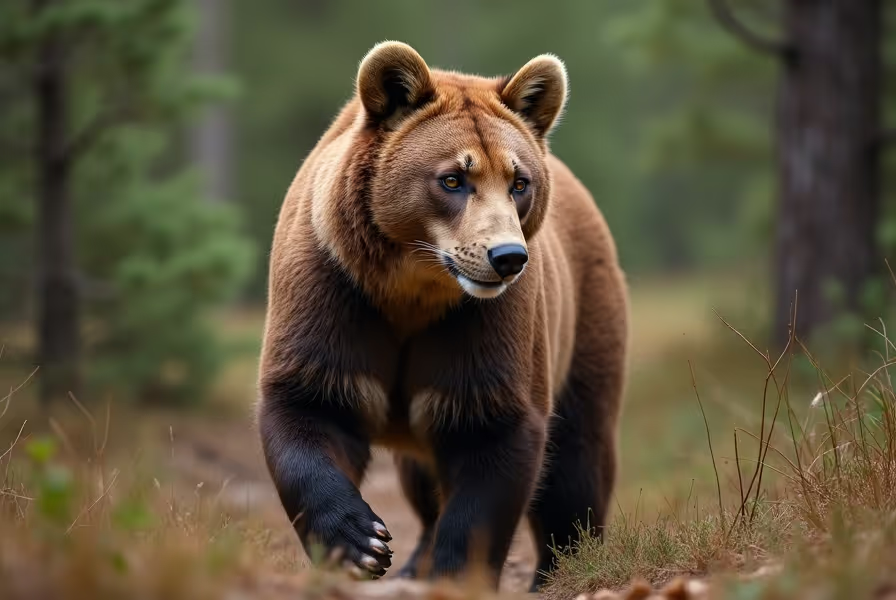Wildlife in Pennsylvania: Understanding Bears, Cougars, and Mountain Lions
Pennsylvania is home to stunning forests, vast mountains, and diverse wildlife. If you hike, hunt, or live near the woods, you may wonder: Are there bears, cougars, or mountain lions in Pennsylvania? Learn about the presence and history of these large predators, their habitats, and safety tips for outdoor activities in the Keystone State.
Black Bears in Pennsylvania: Facts and Sightings
Black bears (Ursus americanus) are an iconic species in Pennsylvania. They thrive throughout the state, especially in the northern and mountainous regions. Experts estimate thousands of black bears live across Pennsylvania's woodlands.
- Habitat: Dense forests, swamps, and brushy areas.
- Size: Adult males average 300 pounds; some exceed 600 pounds.
- Behavior: Usually shy, avoid humans, but are curious about food.
- Best Viewing Times: Spring, summer, and autumn when foraging for berries and nuts.
- Counties with Frequent Sightings: Potter, Lycoming, Pike, Clinton, and surrounding forested areas.
The Pennsylvania Game Commission reports regular black bear sightings every year. Sightings increase in late summer and fall as bears prepare for winter. If you hike or walk in bear territory, make noise and store food carefully. Bear encounters are rare, but understanding their habits helps you stay safe and responsible outdoors.
Are Cougars or Mountain Lions Found in Pennsylvania?
Many people use the terms “cougar,” “mountain lion,” “puma,” and “panther” interchangeably. All refer to the same animal: Puma concolor. Historically, this big cat ranged widely across Pennsylvania and the eastern United States. However, by the late 1800s, eastern cougars disappeared due to habitat loss and hunting.
- Current Status: There are no wild, established cougar or mountain lion populations in Pennsylvania.
- Eastern Cougar Declared Extinct: U.S. Fish and Wildlife Service officially classified it as extinct in 2018.
- Modern Reports: Rare, unverified sightings persist, but most are misidentifications or escaped exotic pets.
- Neighboring States: The nearest wild populations of mountain lions are in the western U.S.
Despite rumors and occasional “big cat” reports, experts, including the Pennsylvania Game Commission, have found no breeding cougar populations in Pennsylvania. Wildlife agencies continue to study reports, but evidence rarely proves credible. Tracks, photos, and videos are often black bears, bobcats, or large house cats.
Bobcats: Pennsylvania's Secretive Feline
When residents claim to spot mountain lions, they often see bobcats (Lynx rufus) instead. Bobcats are native, widespread, and very adaptable in Pennsylvania.
- Size: Adults typically 2–3 feet long, weighing 15–35 pounds.
- Appearance: Short “bobbed” tail, spotted coats, ear tufts.
- Behavior: Solitary, shy, and mainly active at dawn or dusk.
- Common Mistake: Larger bobcats are sometimes mistaken for juvenile cougars from a distance.
If you catch a glimpse of a large cat in Pennsylvania’s woods, it is almost certainly a bobcat, not a mountain lion.
Where Are Bears, Mountain Lions, and Cougars Most Often Seen in Pennsylvania?
For nature lovers, knowing where wildlife may appear adds excitement to hiking and camping. Here’s what you can expect:
- Black Bears: Most commonly found in the Pocono Mountains, Allegheny National Forest, and northern tier counties.
- Cougars/Mountain Lions: No confirmed populations, only rare and unproven sightings, often in remote woodlands.
- Bobcats: Present throughout the state; numbers are increasing thanks to conservation efforts.
If you want to spot native wildlife safely, visit state forests and national parks. Always respect posted guidelines.
Is It Safe to Hike or Camp in Pennsylvania's Bear Country?
Hiking in Pennsylvania is both beautiful and safe if you take smart precautions. Black bears rarely pose a threat to humans, but you should always practice bear safety:
- Travel in groups and make noise on the trail.
- Keep pets leashed and children close.
- Store all food, trash, and scented items securely.
- Never approach or feed wildlife, including bears.
- If you encounter a bear, stay calm, back away slowly, and do not run.
Mountain lion encounters are not a concern in Pennsylvania, since there are no known populations. For bobcats, avoid close approaches, especially if young kittens are present.
Frequently Asked Questions: Bears, Cougars, and Mountain Lions in Pennsylvania
Do black bears attack people in Pennsylvania?
Black bear attacks are extremely rare in Pennsylvania. Most bears avoid people. Attacks usually occur only if a bear feels threatened, startled, or is protecting cubs. Proper food storage and awareness help prevent issues.
Are there confirmed mountain lions in Pennsylvania?
There are no confirmed, wild mountain lions in Pennsylvania. The last native eastern cougar disappeared more than a century ago. Modern sightings are not supported by reliable evidence.
Why do people still report cougar sightings?
Many cougar sightings are cases of mistaken identity or unwitnessed rumors. Most are bobcats, large house cats, or even dogs seen at a distance. Very rarely, exotic pets may escape and cause confusion.
Can mountain lions return to Pennsylvania?
Natural recolonization from western populations is considered extremely unlikely. Pennsylvania's eastern forests are suitable habitat, but no wild populations are nearby. Reintroduction is not planned by wildlife agencies.
What should I do if I see a large predator in Pennsylvania?
Stay calm and do not approach wildlife. Identify the animal from a safe distance if possible. Report unusual sightings to the Pennsylvania Game Commission with details, photos, and exact location. Never try to interact or feed wild animals.
Wildlife Conservation and Reporting in Pennsylvania
Thanks to more than a century of conservation, Pennsylvania’s wildlife is diverse and protected. If you love nature, get involved by reporting sightings, volunteering, or following wildlife updates. The Pennsylvania Game Commission and local organizations help manage large mammals like black bears and bobcats.
- Report bear or unusual large animal sightings on official state websites.
- Never keep wild animals as pets or release exotic pets into the wild.
- Follow guidelines for camping, food storage, and animal encounters.
- Support local wildlife research and education programs.
Exploring Pennsylvania’s wild places can be safe, memorable, and enriching. Understanding which predators roam the forests helps you appreciate the balance of nature—and enjoy the outdoors with confidence.











.svg)



